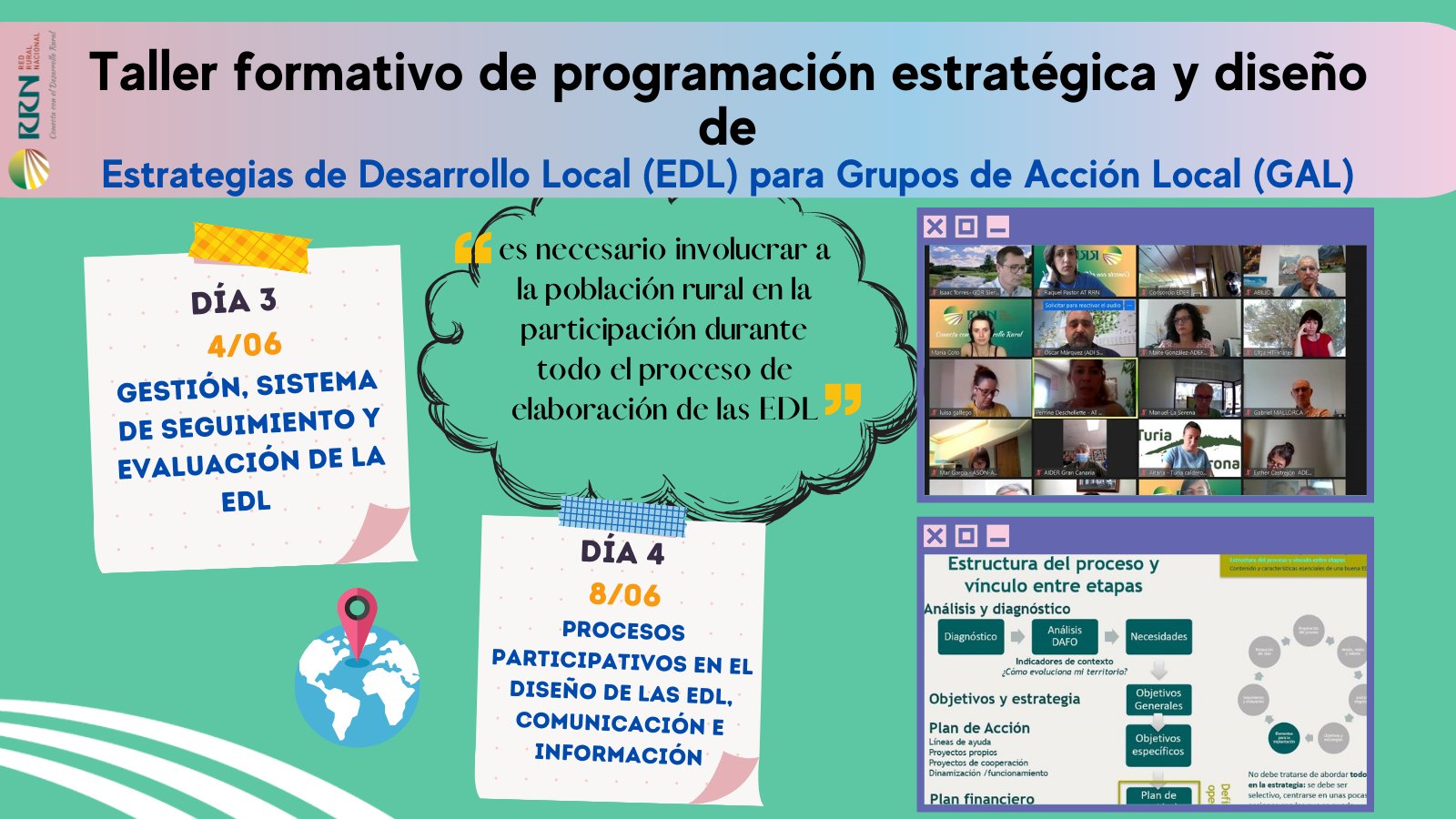
21 de June de 2021
June 14, 2021. The Local Development Strategy is the strategic planning document that acts as a roadmap, allowing Local Action Groups (LAGs) to guide their actions and coordinate their implementation.
- A total of 30 Local Action Groups representing the entire country participated in the online training workshop on strategic programming and design of Local Development Strategies , organized by the National Rural Network.
- The workshop aims to strengthen the groups' knowledge about the design of their future Local Development Strategies and adapt them to the real needs of their territory.
This course emphasized the importance of sound strategic planning, from the diagnostic phase to monitoring and evaluation. It also emphasized the need to incorporate cross-cutting issues such as gender, innovation, and climate change and the environment . In particular, participation was presented as a cornerstone of the entire LDS development process, necessary to involve all stakeholders in the region, not only in the needs definition and identification phase, but also in the evaluation processes.
Integrative vision
During the four-day workshop, all phases of strategic design were covered through presentations and practical exercises that allowed attendees to reflect on the future of their LDS. Attendees also had the opportunity to hear from various experts, such as Carlos Mataix, director of the Center for Innovation in Technology for Human Development at the Polytechnic University of Madrid; José Moisés Martín , professor at Camilo José Cela University; Pablo Lage , public policy expert; and Paul Soto, head of the Contact Point of the European Network for Rural Development . The presentations covered interesting and current topics, such as the Recovery and Resilience Fund, the Long-Term Vision for rural areas, and the Theory of Change in programming processes.
In summary, the speakers emphasized the need for a more systemic, interconnected approach to programming, focusing on strengthening relationships among all stakeholders involved in project design and implementing strategies rooted in the region itself.









